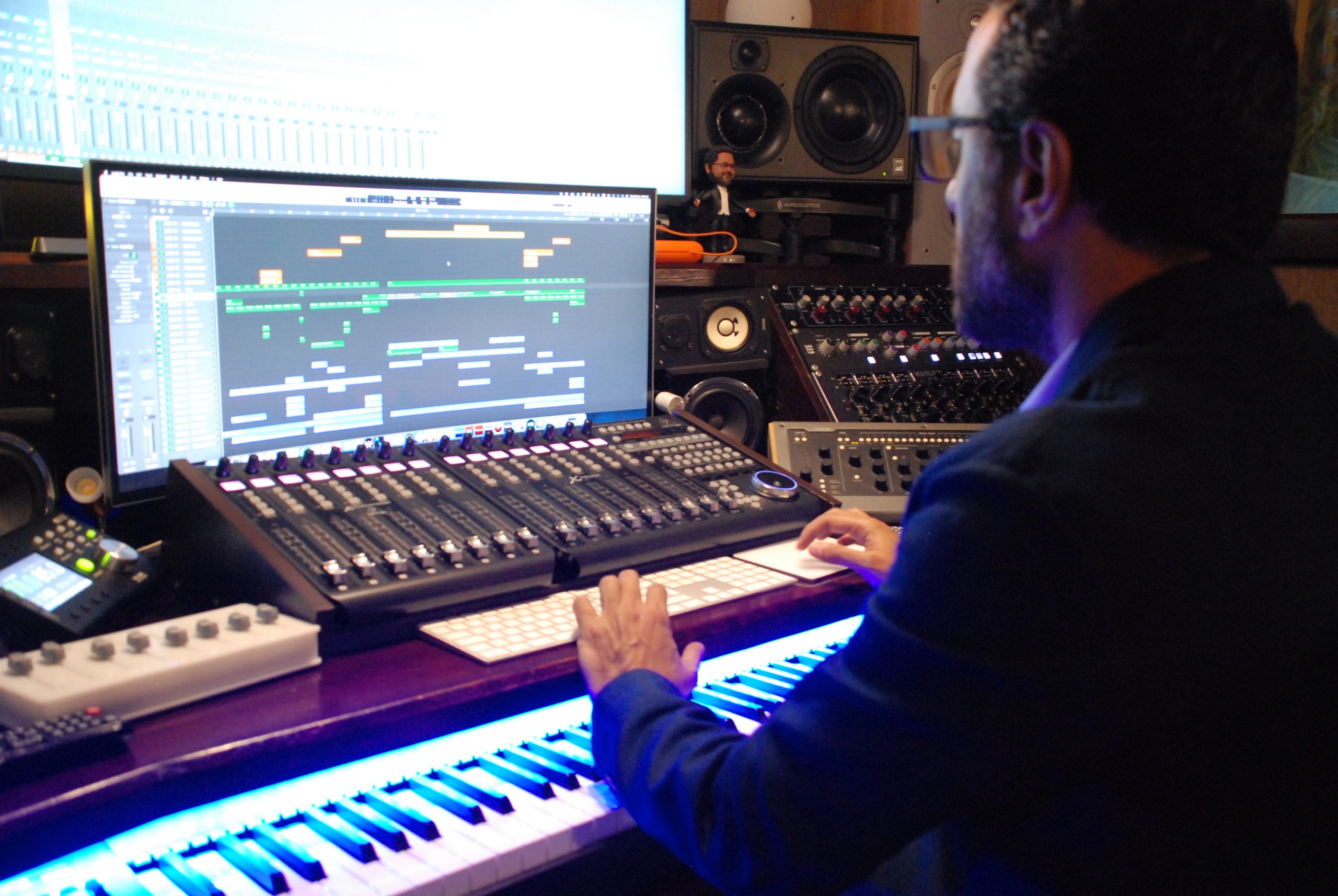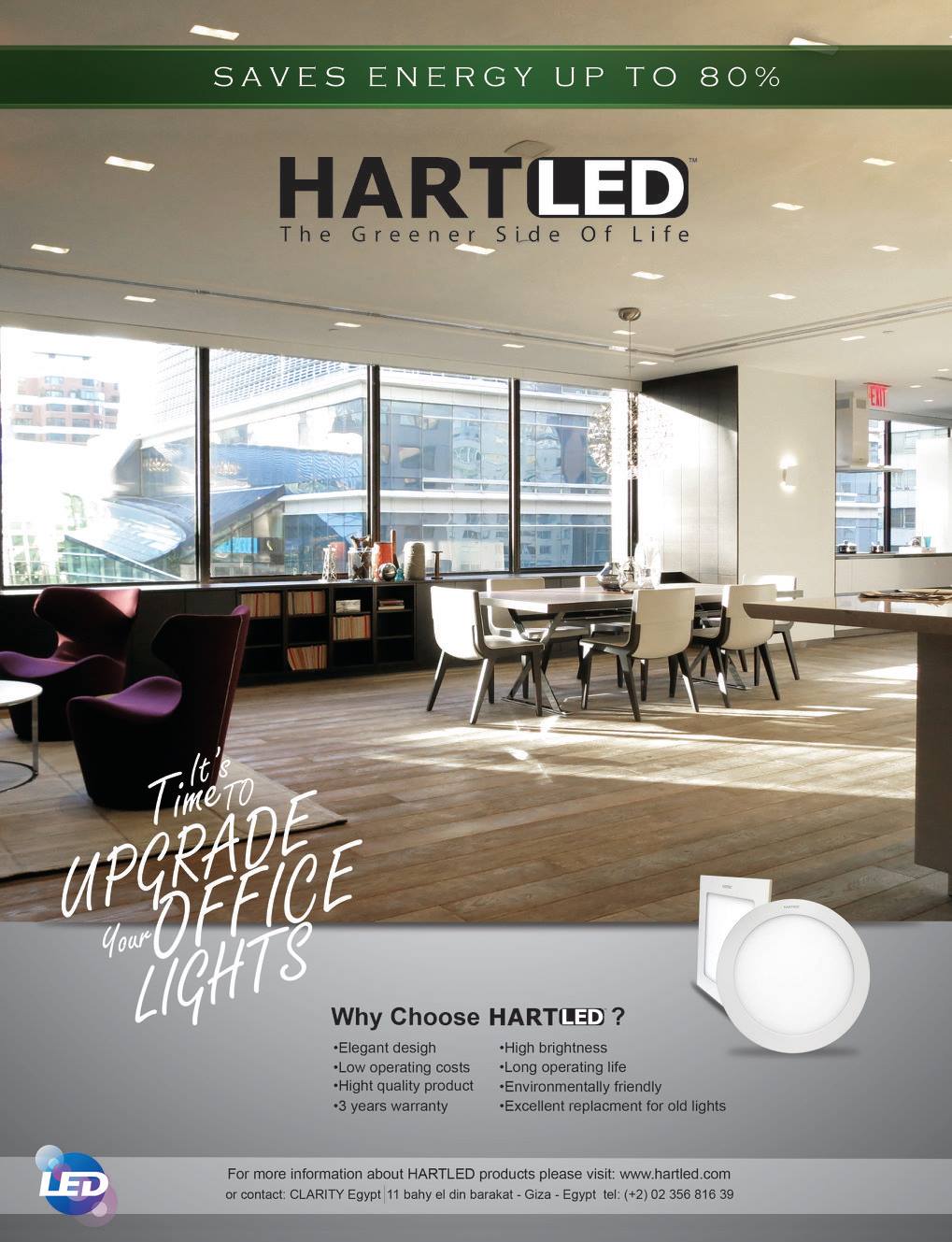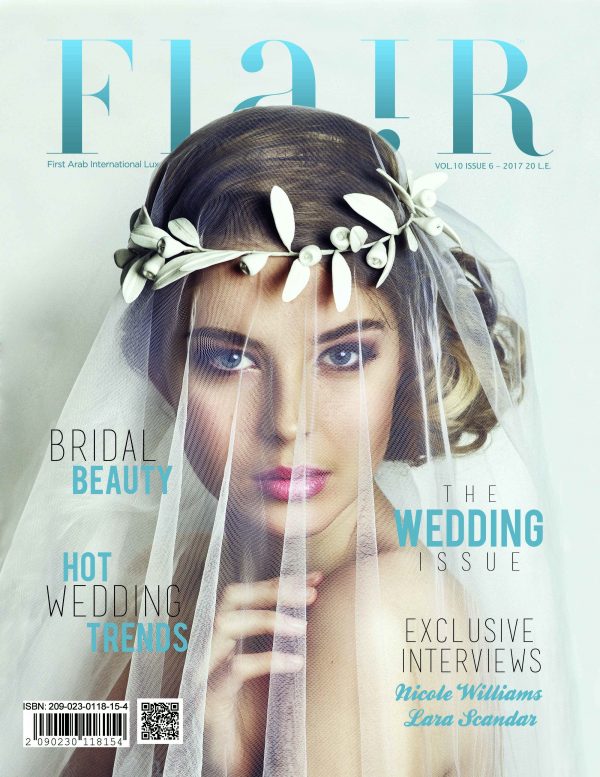Gustav Holst once said “Music, being identical with heaven, isn’t a thing of momentary thrills, or even hourly ones. It’s a condition of eternity.”
Music, along with painting, architecture, dancing, poetry, and theatre, are all prominent elements of the art and design household. The art of musical work entails much more than only arranging notes in a certain sequence or disarray and giving them a catchy moniker. Much of the composer’s skill is to weave an unseen strand into the piece that can elicit sentiments, emotions, and experiences. Embodying all the talents and soulful mysteries, hypnotic composer Mohamed Nawara details his lifelong passion, his intertwined expressive process with the greatest artists to acknowledge a coherent musical reality unique to Egypt’s representation and meet the expectation of its worthy history.
How did you get into the music industry?
My story is a bit different from the usual. In the late 90s when I was still in college, I used to play Oud and Keyboard as a passion of mine. I had brief casual tutoring for some time, but it was not of something academic. Hence, I developed a relative pitch to which I could recognize a music note and identify it just by listening, which eventually led me to win “Best Musician” in two of the talent shows that were held by the American University of Cairo. I still have them set up in my studio to remind me of the good times. However, after college, I had little to no time to commit to music in any way. Fast forward ten to twelve years – upon work stability – I resumed my music rehearsals once more. By then, the music industry was completely different, everything was based on technology, computers, and software which was news to me. Hence, I took a software course in London to comprehend how to put music the right way. Not to mention the role of Adel Haki in my journey, he was a great guide in the sense that he showed me every behind-the-scenes step in the studio and how the process takes place in the music industry. Accordingly, I learned how to play guitar and Oud a few years after until it hit me one day, I knew I wanted to do music for a living. I knew that to ‘perfect’ composing music, I must study immensely and relentlessly. Hence, I enrolled in the Introduction to Music Theory Course at Berklee College of Music. I recall quite vividly that at the end of the course, I sent a thank-you note to all my colleagues till I stumbled upon a colleague of mine who was studying for the master’s Certificate in Orchestration for Film and TV from Berklee who urged me to think this through and apply for two certificates in addition to the Master certificate. That took me three years of studying online whilst attending the summer courses in Valencia which made me fully aware of the core values of music.

When did you create your studio?
In 2017, when I finalized my studies and had my entire mindset dedicated to building this studio. Regardless of it being not very spacious, nonetheless in terms of equipment and sound quality, it’s surely one of the most advanced studios to ever exist in Egypt. I am extremely proud of how I built it from scratch.
How do you select your projects?
I always felt I had the luxury to select my projects with keenness. Either the ones that have a cause and a core purpose or projects that are handled by a team that I want to collaborate with.
What made you want to become a musician?
Two words, one-man ‘Omar Khairat.’ I remember vividly when I was still in high school, I used to blast his music while I studied, it became a daily ritual and I carried that with me ever since.
What inspires your creative side to compose a sonata?
A lot. Usually, my emotions and how I feel at that moment. Because feelings have a social origin, the foundation of musical compositions and the composer’s creative standpoint must be grounded in social reality. Only in this way will the musical pieces be able to communicate their feelings more fully. Also, it depends on the project I am working on if it’s drama or historical like I did for ‘Art D’Égypte’. For example, in the second track ‘Evolve’, we had to make one piece of music that portrayed the evolution of the historical era with no stop in about three minutes. I was fond of that project because we faced numerous challenges like the budget, timing, transitions, Orchestra, and a few things. However, we managed to put out a grand piece that did the subject its justice.
How do you recall your childhood?
Well, my family is fond and appreciative of music in all its forms, but my twin brother and I were the only ones who played instruments. I remember we grew up listening to Omar Khairat, Abdel Halim, and Umm Kulthum, maybe jamming to Amr Diab at times as well. However, listening in anticipation to movie soundtracks was a core memory of mine.

Staying on this topic, you have recently collaborated with the international soprano Fatma Said on ‘Evolve’ for the great project Forever Is Now. Can you walk us through this fusion and the process of artsy behind its creation?
I talked with Art D’Égypte’s founder Nadine Abdel-Ghaffar about the main eras that needed to be highlighted since they are countless. So, we shed the light on the Pharaonic, Romanian, Coptic, Islamic, and contemporary eras. I added the beginning of creation part in the intro at the beginning to make the smooth transition and have a compiled story to tell. It was also crucial to align and synchronize the visuals with the music for the ultimate emotional impact.
Before that, you have also composed the music for the Forever Is Now documentary that paid tribute to fourteen contemporary Egyptian artists of the past & the present. How did you ensure such transcendence from Egypt to the world through music?
It’s known as a conceptual art documentary rather than a film one that celebrates fourteen Egyptian artists whether of today or pillars of the past. Karim – the director – helped broaden the horizon when it came to creativity and execution. Not to mention, Fatma Said, who was the lighthouse to this project with her immeasurable talent. However, the real challenge was to think out of the box and choose the paradoxes of what one might think of creating this project. So, instead of going big on the production and instruments, we chose electronic sounds in zin tones. It took some time to get the picture Karim was aiming for, but eventually, it all worked out better than we thought it would.
What is your favorite genre of music?
I love the music scores for movies. I have a list of my favorite composers, none of which include ‘Hans Zimmer.’ Lately, I am fond of the ’60s and 70’s rock like the Beatles and Pink Floyd.

Who would you want to collab with?
Wael El Fashny, no doubt. He is such an inclusive versatile artist with amazing vocals, we are collaborating on ‘Ayam’ which is out now.
An inspiring movie you saw.
Schindler’s List. I remember when I was taking the ‘Hollywood Music Workshop’ in Vienna, Conrad Pope – also known as the God of Orchestration – was the greatest inspiration with the utmost passion for music. His admiration and relish for John Williams who has written some of cinema history’s most well-known, identifiable, and widely lauded film scores have no limits. This movie was composed by John Williams who won an Academy Award for Best Original Score, Williams believes that he was careful not to fall into the trap of melodrama, instead opting for “kind, romantic and peaceful” music. Another movie that triggered my creative sensation was ‘Hassan w Morcos.’ Yasser Abdel Rahman who composed the music tackled the national unity and Muslim attitudes towards the Coptic and vice versa in the most authentic way possible. This piece inspired my creation for ‘Evolve’ as well.
Describe Nawara music in just two words?
A sincere artist.




